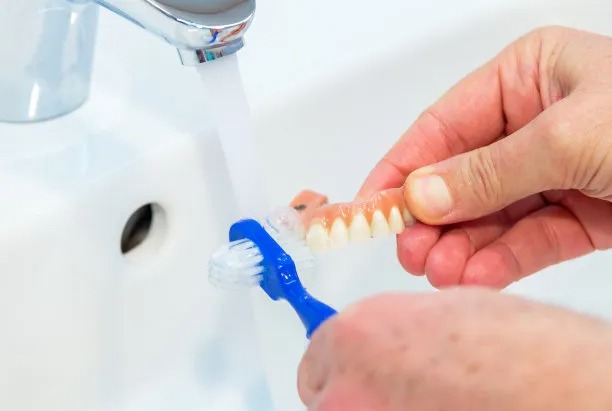Summary: Dental implants have revolutionized restorative dental care, providing patients with an effective solution for missing teeth. This article explores the significant benefits of dental implant treatments, including their contribution to oral health, innovations in technology, the psychological impact on patients, and their economic advantages. Each aspect illustrates how dental implants not only restore function but also enhance confidence and quality of life. As dental technology advances, implants become more accessible and reliable, leading to better outcomes for patients seeking restoration. This exploration sheds light on why dental implants are considered the gold standard in tooth replacement.
1. Enhancing Long-lasting Oral Health

Dental implants play a crucial role in maintaining oral health. Unlike traditional dentures, implants integrate with the jawbone, preventing bone resorption, which is often a consequence of tooth loss. This integration provides stability to the jaw, ensuring that it maintains its shape and structure over time. The preservation of bone density is vital for overall oral health, affecting the functionality and aesthetic of the smile.
Moreover, implants eliminate the need for adjacent teeth to be altered, a common practice in bridge placements. This conserves healthy teeth and maintains their integrity. With implants, patients can chew effectively, aiding in digestion and overall nutrition. The ability to bite into a variety of foods without discomfort contributes significantly to a balanced diet.
Additionally, dental implants are easier to clean than traditional dentures. Patients can maintain their oral hygiene routines, as implants can be brushed and flossed just like natural teeth. This ease of care helps prevent periodontal disease, leading to improved long-term oral health outcomes.
2. Innovations in Dental Implant Technology
The realm of dental implants has seen remarkable innovations over the past years, significantly improving the patient experience. Computer-guided implant surgery has become increasingly popular, allowing for precise placement of implants based on 3D imaging. This technology minimizes surgical invasiveness and enhances the accuracy of the procedure, leading to quicker healing times and improved results.
Furthermore, the development of biocompatible materials for implants has revolutionized their acceptance by the body. Traditional titanium implants are now often combined with surface treatments that promote osseointegration, allowing them to bond more effectively with the jawbone. This advancement decreases the risk of implant failure and increases the predictability of treatment outcomes.
Additionally, innovations like mini implants and zygomatic implants have expanded the scope of treatment options for patients who may not have enough bone density for standard implants. These developments thus cater to a wider range of patients, making dental implants accessible to those who might have previously thought they were not candidates for such treatments.
3. Psychological Benefits and Restored Confidence
The impact of dental implants extends beyond physical health; they profoundly affect an individuals psychological well-being. Missing teeth can lead to self-consciousness, embarrassment, and a reluctance to smile or engage in social interactions. Dental implants restore the natural appearance of teeth, enabling patients to regain their confidence.
Research shows that individuals with dental implants tend to experience improved self-esteem and a better quality of life. The feeling of having a complete smile can empower patients to explore opportunities they may have previously avoided due to fears of judgment over their dental appearance.
Moreover, the confidence gained from a restored smile can positively influence personal and professional relationships. Patients often report feeling more at ease in social situations, leading to greater overall happiness and mental well-being. This psychological aspect makes dental implants invaluable in many patients lives.
4. Economic Advantages of Dental Implants
Though dental implants may require a higher initial investment compared to other tooth replacement options, they often prove economically beneficial in the long run. Traditional solutions such as dentures and bridges may require frequent adjustments, replacements, and additional dental work, accumulating significant costs over time. In contrast, with proper care, dental implants can last a lifetime.
Furthermore, the durability of dental implants translates into reduced dental visits, contributing to overall cost savings. Patients do not need to invest in temporary solutions repeatedly, which can also save on medications and treatments for complications often associated with less permanent solutions.
Investing in dental implants ultimately enhances overall health and well-being. By enabling effective chewing and proper nutrition, they can prevent health issues associated with poor dietary habits linked to inadequate tooth replacement solutions. Moreover, improving one’s smile can lead to better job prospects and success in social situations, representing a holistic economic advantage.
Summary:
In conclusion, dental implants stand out as a transformative solution for missing teeth, significantly enhancing oral health, introducing innovative technologies, and restoring psychological confidence. The economic benefits further solidify their position as the preferred choice for tooth replacement. Choosing dental implants is not just about aesthetics; it is a step towards longevity in oral health and overall life satisfaction.
This article is compiled by Vickong Dental and the content is for reference only
Vickong Dental
Vickong Dental is a large medical group established in Hong Kong in 2008 by professors from well-known medical universities in Guangdong and Hong Kong, as well as medical doctors from key national '985' universities (including Master's supervisors and senior professors). The chain of branches brings together expert dentists with PhDs and Master's degrees from Hong Kong and Mainland China, committed to providing high-quality dental treatment.
"Vickong Dental Practices the University Motto of 'Healing and Serving Society,' with a Stable Operation for Sixteen Years. It Has Been honored with Hong Kong Enterprise Leaders's Choice,' and is a Global Trusted Implant Center for the Nobel Implant System. Recommended by Hong Kong Metro Broadcast and Guangdong Television, it Serves Customers from Over Thirty Countries and Regions, Gaining the Trust and Favor of Citizens from the Guangdong-Hong Kong-Macau Greater Bay Area and Surrounding Cities.

Thousands of customers' unanimous praise
The most recognized and highly recommended dental service by customers in the Guangdong-Hong Kong-Macau Greater Bay Area
We Ensure You Receive Detailed Care and Attention Here
Hong Kong standards, Shenzhen prices, Your Trusted English-speaking dentists

Vickong Dental Medical-Grade Instrument Disinfection Process
Vickong Dental Medical-Grade Instrument Disinfection Process

Vickong Dental Chain: A Warm and Comfortable Environment for Treatment






Appointment Hours

Q&A
Why choose Vickong Dental?
Vickong Dental practices the university motto 「Medicine to Benefit Society」, with each branch bringing together highly qualified dentists with doctoral and master’s degrees from Hong Kong and the Mainland, and has maintained seventeen years of steady operation。Recipient of 「2024 Hong Kong Enterprise Leaders Brand」, 「2025 Hong Kong Enterprise Leaders Brand」, a Nobel Biocare Global Trusted Implant Center, and a brand recommended by Metro Radio Hong Kong and Guangdong TV。
To date, we have served customers from more than thirty countries and regions,earning exceptionally high word-of-mouth recognition and trusted recommendations from residents across the Guangdong-Hong Kong-Macao Greater Bay Area and surrounding cities
We have eight major branches in Zhuhai、Shenzhen,and a consultation and service assurance center in Hong Kong,so you can book a free consultation at any time for any questions,which is very reassuring.
If I do not accept the quotation after the CT scan, will I be charged??
No! As long as the actual treatment has not started, you will not be charged any fees.
Will there be any additional charges during the treatment process?
No, there won’t be any additional charges. Before treatment begins, we will clearly explain the treatment plan and its corresponding fees. Only after the patient agrees and signs the consent form will we proceed with the dental service.
Can I pay in Hong Kong dollars?
Yes. Vickong Dental accepts payment in Hong Kong dollars. The amount will be converted based on the exchange rate of the day, and the applicable rate will be clearly communicated to you in advance.
Can I reschedule my appointment at any time?
Yes. Please contact us via **WeChat** or **WhatsApp** as early as possible, providing your original appointment time and details, along with your preferred new date and time slot for rescheduling.













